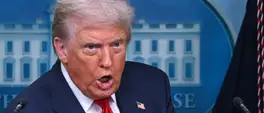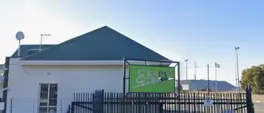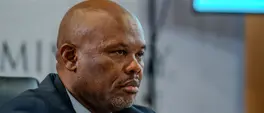MALAIKA MAHLATSI: The dangers of the middle-class and the wealthy opting out of government services
Malaika Mahlatsi
31 October 2025 | 14:15"When government fails, we all suffer - some more than others - but ultimately, a country that does not work for the many can never work for the few."
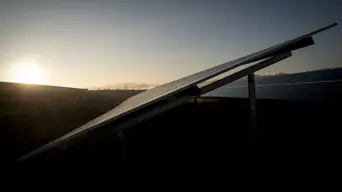
The initiative gives residents an opportunity to sell their excess rooftop solar power back to the municipality for cash. Picture: Shiraaz MOHAMED / AFP
This article is being written as a group of technicians are on the roof of my house installing a photovoltaic system, commonly known as solar power.
Like many middle-class South Africans, I have chosen to eliminate reliance on the Eskom grid. My decision was informed by several factors.
While loadshedding has been significantly reduced in South Africa and certainly in the northern Johannesburg suburb where I live, instances of power outages have not been completely eliminated.
This month alone, power has gone out twice in my area, each time for almost an entire day. The indication is that this was due to transformer vandalism, a crisis in Johannesburg and the broader Gauteng Province.
The vandalism and theft of transformers are ongoing problems across Johannesburg and other parts of Gauteng. A few months ago, a transformer worth R7 million was stolen from the Laudium substation in Tshwane.
The theft was carried out in broad daylight by individuals posing as workers, with the cooperation of security personnel at the substation. Eleven suspects were initially arrested soon after the crime and just three months ago, three more City of Tshwane municipal workers were taken into custody.
The case, which is being handled by the Gauteng Organised Crime Unit, is currently ongoing at the Atteridgeville Magistrate's Court. Not many cases of transformer theft and vandalism end up in court, as perpetrators are rarely apprehended.
The impact of transformer theft and vandalism is devastating to households and businesses alike. As a research specialist who primarily works from home and as a student in the process of completing my doctoral dissertation, power outages, planned or unplanned, affect my work significantly.
As a woman living on my own, power outages also have safety implications. While I may live in a relatively safe neighbourhood and a secure complex, the security system failures that occur during these outages pose challenges. Johannesburg is already a crime-ridden city without power outages - more so when the lights go out, as darkness gives criminals the cover they need.
Yet even as I can rationalise the need for electricity security, I have my own discomfort about the route that I and many other middle-class South Africans are being forced to take to protect ourselves from government failures.
This is especially troubling because we are not only opting out of the Eskom grid; we are increasingly opting out of many critical government services. In wealthier neighbourhoods, there is an increase in private service provision.
We pay for private security to reduce reliance on public law enforcement. We have opted out of public schools, the public healthcare system and even basic services like water.
Where in the past we used to complain about the slow repair of potholes, residents now fix them themselves whenever they appear, a frequent occurrence.
On one hand, this may be seen as citizens engaging in the rebuilding of their own communities, which can be a good thing. Democracy, after all, requires active participation from all stakeholders.
The problem, however, is that people are not participating out of a sense of civic responsibility to work with the government to build the country - they are participating because the government, particularly at municipal level, is failing to provide basic services.
This is not a social compact; it is a vote of no confidence not only in the government but in the democratic project itself. Additionally, this approach entrenches rather than resolves the systemic issues that South Africa faces. Structural inequality is a metastatic cancer in our country. Thus, while some of us may opt out of public services as far as possible, millions more rely on the government to provide these services.
The majority of South Africans do not have the ability or capacity to opt out of the Eskom grid, purchase bottled water when municipalities fail to provide clean drinking water, repair their roads when potholes go unaddressed for months or years, pay for private security to protect their neighbourhoods, or create sustainable alternatives to government services.
Only a few middle-class and wealthy individuals have the privilege of giving the middle finger to the government when it fails. The implication is that working-class people, particularly in townships and rural areas, will continue to bear the brunt of service delivery failures that devastate their lives and ability to sustain livelihoods.
When those of us with means choose to opt out and secure our own comfort, we leave vulnerable people exposed to government neglect.
Once our comfort is secured, the will to fight against injustice is diminished. Solidarity, by definition, is unity or agreement of feeling or action, especially among individuals with a common interest - mutual support within a group. Beyond common humanity, it is deeply rooted in shared experiences and circumstances.
This is why the wealthy so easily disregard the poor: even though they are all part of the same human race, the vast differences in their geographies, histories, experiences, and circumstances diminish their capacity for solidarity. And so, when those with financial, economic, political, and social capital, those best positioned to fight for collective justice, choose instead to opt out, those without any of this capital are left exposed, fighting a system that disregards and renders them invisible.
It is for this reason that even as I opt out of Eskom and continue to rely on private services, it is not without a deep sense of unease. I know what this means because I have been to other African countries where the sense of dejection with political leadership is so intense that the wealthy have completely insulated themselves from government failure.
I have seen how people fought so hard and for so long that they eventually became exhausted and started creating alternatives for themselves, some of them dangerous. Consider the situation in the wealthy Harare suburb of Borrowdale, Zimbabwe, where every household has installed a borehole, resulting in water contamination, aquifer depletion, and potential ground instability. This is the path we take when we opt out instead of intensifying our fight against poor service delivery.
We end up with governments like the Harare City Council, which eventually stop bothering to provide even basic services because they know the wealthy will “make a plan,” thereby disregarding the poor.
This is what we set in motion when we opt out. We may enjoy some comforts, but when you look closely, the truth reveals itself: when government fails, we all suffer - some more than others - but ultimately, a country that does not work for the many can never work for the few.
Malaika is a geographer (with expertise in urban geography and water resource governance) and researcher at the Institute for Pan African Thought and Conversation. She is a PhD in Geography candidate at the University of Bayreuth in Germany.
Trending News
More in Opinion
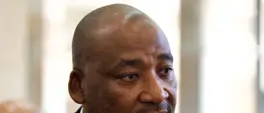
20 February 2026 14:45
JAMIL F. KHAN | Democratic institutions must be protected from rising religious fundamentalism

19 February 2026 05:15
CHARLES MATSEKE | From State of the Nation to Republic of Commissions: SA's playhouse of accountability
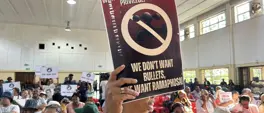
18 February 2026 17:30
VUYANI PAMBO | Biko, Bonga, and the running waters of Gauteng: Towards a liberation theology for South Africa's 2026 Elections
